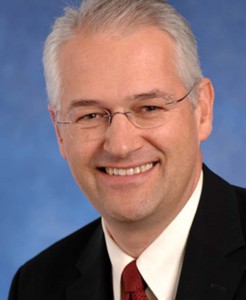Audi is giving serious consideration to adding its own production plant in the United States as part of the Volkswagen subsidiary’s plan to double sales to 200,000 by 2018.
While the German marque has become one of the world’s largest luxury brands – in some markets now leading more established rivals like Mercedes-Benz and BMW – it has continued to lag in the U.S., where it never fully recovered from a safety scandal back in the late 1980s, despite having been cleared by federal regulators.
Jonathan Browning, the new CEO of the Volkswagen Group, the U.S. subsidiary of Volkswagen AG overseeing both the VW and Audi brands, says a decision on the American assembly plant will be made by the end of 2011.
That would finally wrap up an ongoing debate that has spanned more than a decade. While both Benz and BMW now have major assembly operations in the U.S., Audi has resisted setting up a “transplant” assembly line, in part, because of the limited sales volumes it has achieved in the States. But critics have argued that the maker is suffering from a chicken-and-egg syndrome and can’t build volume without the plant.
Playing in favor of setting up a facility, lopsided dollar/Euro exchange rates have made it increasingly cost-prohibitive to import vehicles from Europe, especially smaller models like the popular A4.
Officials from the German automaker offered few details about the Audi plant discussion. Previously the company’s executives had been quoted as saying it could be the middle of the decade before a decision is reached on the plant. It is unclear why the timetable has been moved up.
Audi’s sibling brand also resisted the move to the States, a position hardened by Volkswagen’s poor experience when it operated a factory in Westmoreland, PA, which it closed a quarter century ago.
VW reversed its position as part of a plan to boost sales to at least 800,000 by 2018. Its new factory, in Chattanooga, TN, will go into operation later this year producing a dedicated U.S. version of the midsize Passat sedan.
Even as, Volkswagen prepares to roll out its latest effort to win over the hearts of sedan buyers, it’s also talking about the need to broaden its portfolio of crossovers and sport-utility vehicles .
Browning is suggesting both VW and Audi need more of them, sales figures from 2010 showing that Americans rekindled their love affair with the vehicles, last year. Sales of trucks and crossovers accounted for 51 percent of the U.S. market, which benefited Detroit’s carmakers as well as South Korea’s Hyundai and Kia, which expanded their own portfolios.
Browning also said VW and Audi both need more dealers in the U.S. if the VW Group is going to reach its goal of selling 800,000 vehicles in the U.S. particularly since VW actually wound up behind Subaru in total sales in 2010.
During an appearance in Detroit, the British Browning, who took the U.S. management job last year, acknowledged that product alone won’t get VW and Audi to their sales targets. The makers must also improve both quality and customer care.
Paul A. Eisenstein contributed to this report.

